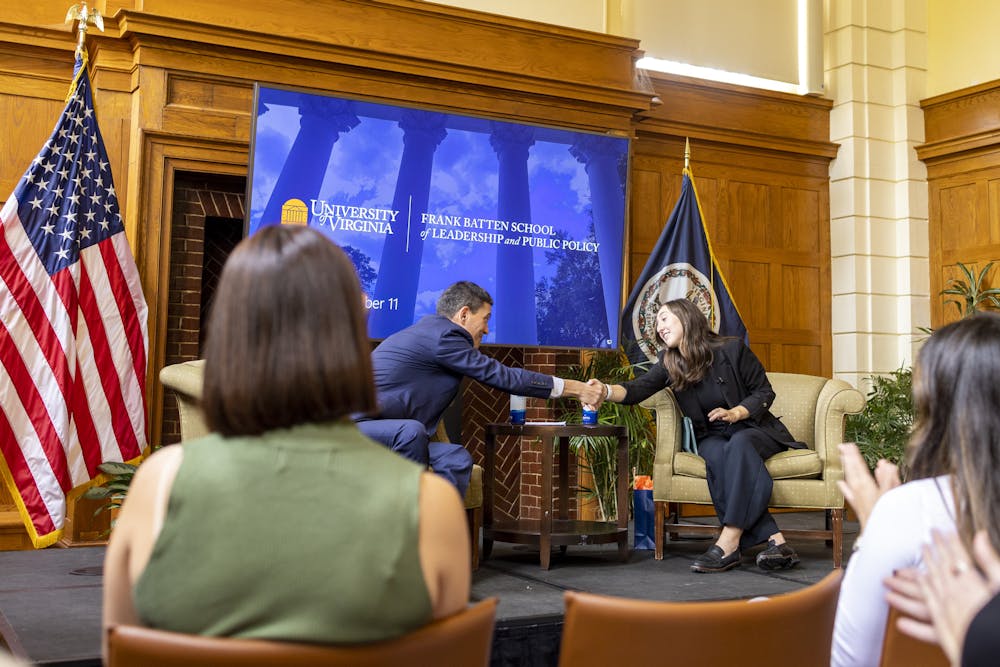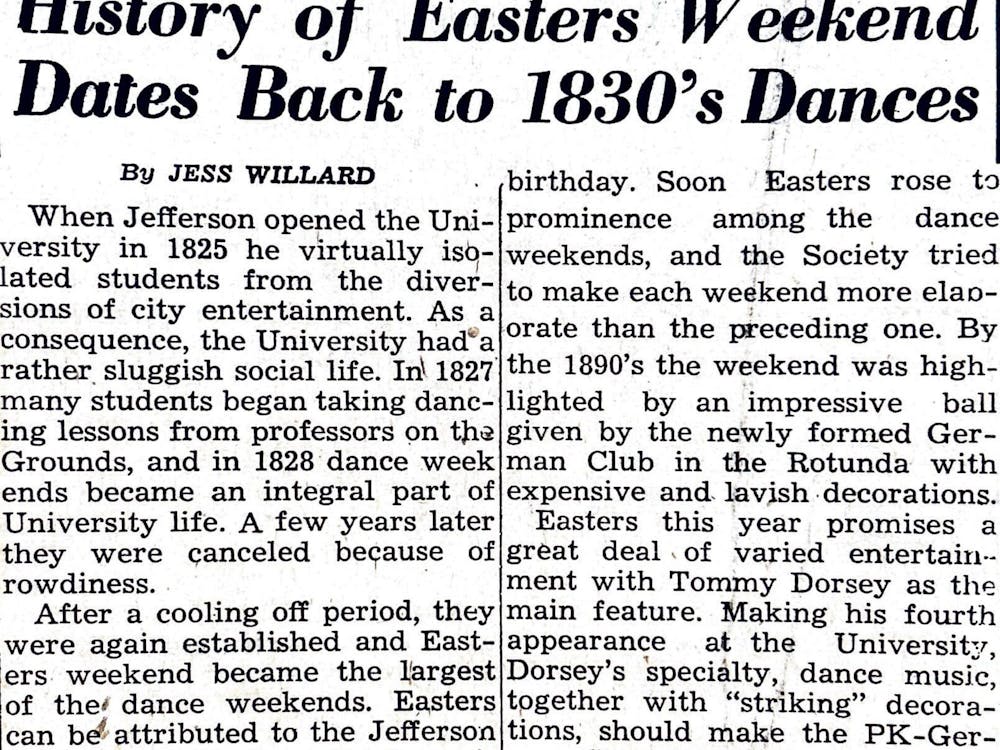Politician and nonprofit director David Miliband answered questions from students groups and individuals at an event titled “Meet the President of the International Rescue Committee” Wednesday. Miliband discussed the relationship between humanitarianism and politics, public service and leadership dynamics.
The discussion was held at the Frank Batten School of Public Policy and Leadership and sponsored by the Public Service Pathways Program, Global Studies, U.Va. Career Center, U.Va. Humanitarian Collaborative, Batten Career Services and the IRC chapter in Charlottesville.
Miliband shared his experience in politics and non-profit work at the International Rescue Committee, a global humanitarian aid organization founded by Albert Einstein in 1933. The IRC has 28 locations across America and works in more than 40 countries to provide resources including health, education and livelihood support in crisis-affected areas.
Miliband became the IRC’s CEO in 2013. As the son of refugees, Miliband said he wanted to focus on complex issues and tell the stories of people like his family.
“There was much that echoed down the ages about the experience of people who are caught up in conflict,” Miliband said. “And then if I could close a circle, I said, by helping people who are suffering in the 21st century from some of the violence that has been suffered in previous generations, and that was a worthwhile thing to do.”
Miliband began his work in policy analysis and advising, but left the backroom and entered government when elected as a member of Parliament in 2001. His political career also included stints as the minister of state for schools, secretary of state for environment and secretary of state for foreign, Commonwealth and development affairs.
Student questions were presented by event moderator and second-year Masters in Public Policy student Madison Cohen. Cohen said she had communicated closely with Miliband’s team ahead of the event to select meaningful questions that may be applicable to members of the audience.
“For students who are interested in the public service sector or working in international development, I think his experiences are really going to help people kind of shape what their career path might look like,” Cohen said. “I think it's going to be an inspiring story to see how far he's come and how he uses that to drive his work.”
Several student questions for Miliband regarded different policy, aid and leadership strategies that he developed through his experiences. Many Batten students in the audience asked issue-specific questions about the nexus between foreign policy and non-governmental organizations, which are independent of affiliation with governments.
The role of NGOs was particularly stressed throughout the discussion, especially due to the past two decades of Miliband’s non-profit experience. He said today’s political climate often sees governments pulling back from “big problems.”
“My view is that means that NGOs and businesses are going to have to come together to innovate,” Miliband said. “Government is under such pressure to be risk averse, that I think that the innovation is going to have to be incubated outside and then try to recruit governments to support solutions.”
Miliband said politics must not stop with politicians, but instead reach beyond the scope of government and be acknowledged by NGOs. According to him, this combination of humanitarian and political elements in organizations allows people to keep sight of individuals and the “big picture” simultaneously.
Fourth year Education student Makana Brooks, a member of Public Service Pathways’ Student Advisory Council who worked on organizing questions for the discussion, said she was impressed by the high level of student engagement.
“I think a lot of undergraduate students are very interested in learning about the process that leads someone to such a high profile career,” Brooks said. “I think it's actually crazy that the CEO of the International Rescue Committee, which is a big name, is here – but also, I think we're interested in how he got to that point.”
In addition to perspectives on policy and issue-specific questions, Miliband used his professional experience to offer advice to students in the audience about their futures.
“My story is one of taking opportunities when they are presented — there's also an untold story about opportunities I didn't take and I regret not taking,” Miliband said. “So my strong advice is that when you've got a chance to go and do something, do it, don't assume that you'll leave the path you're on … the alternative is a good thing to grow.”
Miliband also spoke at The Haven — a local resource and housing shelter — the same evening at an event hosted by the Miller Center, titled “How to Stay Optimistic in an Age of Crisis.” Members of the public can view this discussion on hopefulness in humanitarianism here.







